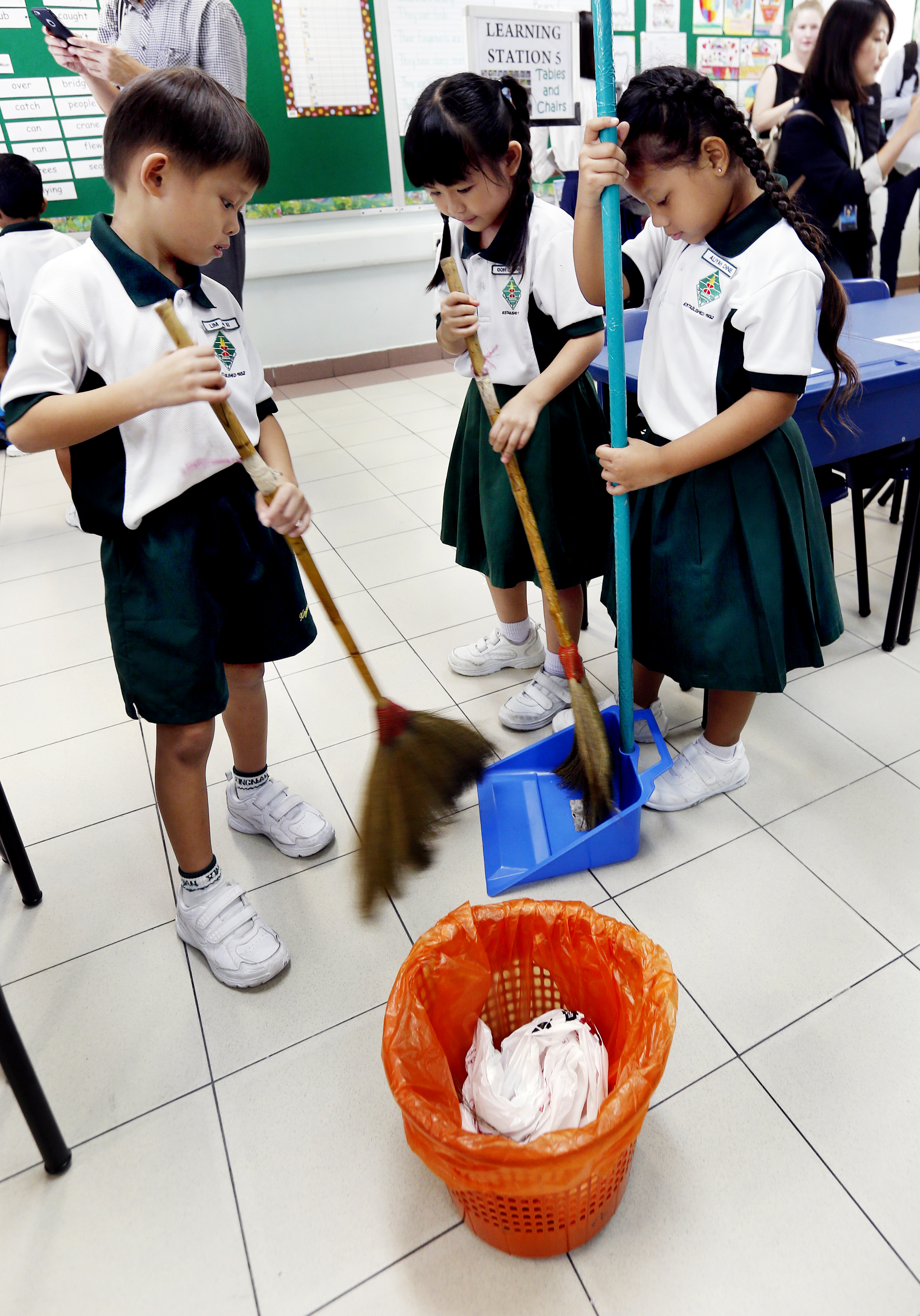Experts laud move to have students clean schools
Educators see long-term benefits to children, community; some schools already doing it
Sign up now: Get ST's newsletters delivered to your inbox
A move to make all schools include cleaning activities by the end of the year could bring long-term benefits to both students and the community, according to education experts and sociologists.
The scheme will help build character, cultivate a sense of ownership and spill over to the home environment.
Last Thursday, the Ministry of Education (MOE) announced that students in primary and secondary schools here, as well as those in junior colleges, will have to spend at least a few minutes each day cleaning classrooms, canteens and corridors.
The aim, according to the ministry, is to help them cultivate good habits for life. Schools are given the flexibility to decide on what these daily activities should be and when they take place.
Dr Kang Soon Hock, who heads the social science core at SIM University, said that when students actively participate in the daily clean-up activities, they will learn to take responsibility. The cleaning activities also give them opportunities to work with their classmates.
Dr Timothy Chan, director of SIM Global Education's academic division, believes such cleaning duties help students to learn to live in communities. "Participating in cleaning the school environment is one effective way to learn how to live together," he said. "Through such activities, students will look at cleanliness not just as a condition, but also as an attitude."

However, Dr Chan added that the activities have to be planned carefully by the schools.
"In order to alleviate parents' concerns, schools may consider excluding certain areas from being cleaned by students, such as unsheltered areas," he said.
Prior to Thursday's announcement, many schools had already included five to 10 minutes of cleaning work by students.
At St Joseph's Institution, students follow a roster of classroom cleaning duties. Tasks include cleaning the whiteboards, sweeping the floor and taking out the trash.
At Haig Girls' School, pupils will, among other tasks, clean the canteen after recess and pick up litter in the classroom between lessons.
In the past, there would be tissue paper and food packets on the floor in common spaces like the canteen, said principal Constance Loke.
She added: "Pupils are now more conscious about picking up litter and the common spaces in the school are much cleaner."
Some schools have implemented more cleaning initiatives this year.
At Meridian Junior College, students have to ensure a classroom is ready for use before every tutorial. This includes cleaning the whiteboards and arranging the classroom furniture neatly at the start and end of every lesson.
Principal Lim Yan Hock said: "It ensures that each student starts the lesson not only with a clean working environment, but also one that is clutter-free."
Dr Intan Azura Mokhtar, deputy chairman of the Government Parliamentary Committee for Education, said the cleaning tasks will allow students to appreciate their school and estate cleaners and, for some, their domestic helpers.
"For too long, we've been expecting a clean environment to exist by other people's effort and toil," she added.
"There's no better way to impart values and build character than by rolling up your sleeves, getting your hands dirty and doing the work together."


